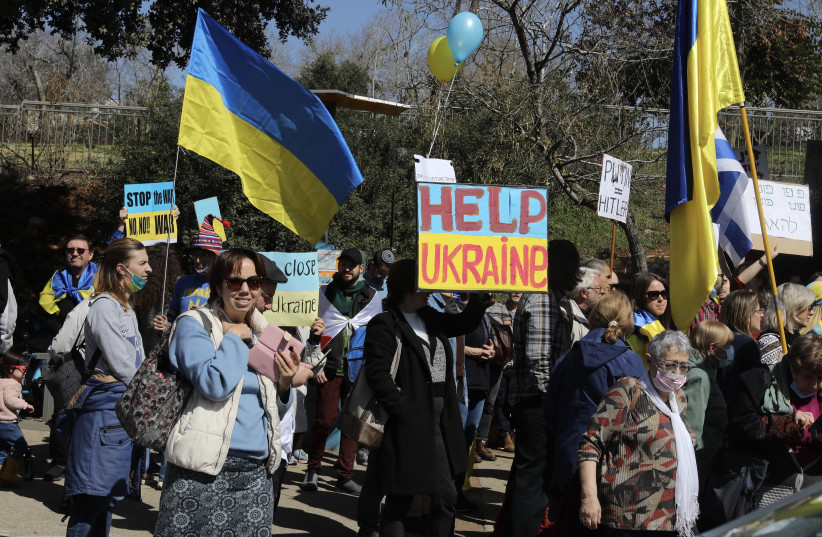Israel has faced tremendous pressure since the Russian invasion of Ukraine began. These pressures have come from both sides, including calls for Israel to mediate the conflict. Israel is now in an unenviable position. Whatever Israel does could have consequences. Supporting Ukraine and the European countries that are standing up to Russia appears to be in Israel’s interests as a democracy that is close to the West. But that could have ramifications for Israel’s freedom to operate in Syria against Iran because Russia has a major role in controlling Syria’s airspace.
This means that Israel’s best course is to stay out of the conflict in Ukraine. That doesn’t mean Israel can’t do humanitarian work or evacuate its citizens and Jews. Israel must remain committed to its values in this respect. However, when it comes to trying to tread the thin line between the West’s strong stance against Russia’s invasion and managing relations with Russia, Israel should try to not get dragged in.
This is not an easy task. Israel is a key ally of the United States. Israel also has amicable relations with Ukraine and Russia. Israel wants to have good relations with both countries. In recent years when Ukrainian leaders and politicians have visited Israel, there have been positive talks with them about bilateral relations, trade and also shared values.
Israel has a history in Ukraine because of the large Jewish community there. Every year thousands of Israelis go to Ukraine on forms of religious pilgrimage to places like Uman. In addition, Israelis study there. Israelis also have deep ties to Ukraine because of Zionist history. Leading Zionists came from places like Odessa. We cannot disentangle ourselves from this Ukrainian history and landscape.

That being said, we also have good relations with the Kremlin and Russia has been playing a growing role in the Middle East. Russia is involved with the Iran negotiations in Vienna and could potentially supply Iran with weapons and air defense. Russia backs the Assad regime in Syria and it is in Syria that Iran has sought to establish a road to the sea to traffic weapons to Lebanon’s Hezbollah.
In recent years, the Iranian threat in Syria has grown. Iranians have launched drones at Israel from the T-4 base and Iran has built a base near Albukamal named Imam Ali that is used to transfer weapons. Iran also uses Syria to transfer precision-guided munitions to Lebanon.
Israel has sought to stop this Iranian threat via thousands of air strikes over the last decade. But these are not enough. Israel needs freedom to operate in Syria against Iran’s threats.
To maintain that freedom, Israel has had a deconfliction mechanism with Russia since 2015.
After the Syrian regime returned to the Golan border in 2018, these issues became more acute. Russia has sometimes critiqued Israel’s air strikes and a crisis even developed in 2018 when Syrian air defense shot down a Russian plane near Latakia during an Israeli airstrike. The war in Ukraine has the potential to reignite that crisis.
So far, Israel and Russia have kept the mechanism in Syria in place. But Russia is being pressured by the West over Ukraine, being ejected from financial networks and airspace; it risks being isolated.
Russia will want to stem the tide of isolation by leaning on countries over which it has influence. So far we have not heard Russian threats but we must tread carefully. We have the same need to tread carefully as do Turkey, Qatar, the UAE and other states in the region.
Israel has put out statements critiquing the war and has held calls with both sides. And while Israel could potentially serve as a mediator, it would serve Jerusalem best to stay neutral and not become overly involved in this conflict. Israel is in the Middle East and should maintain its close alliance with the US and Europe, without becoming a focal point in the war in Ukraine.
